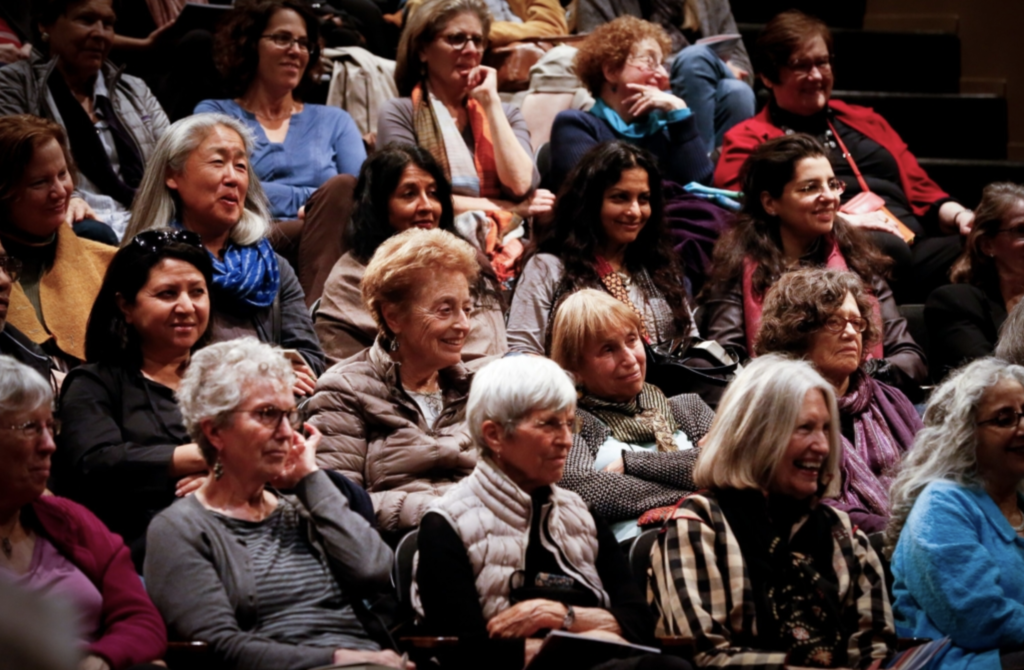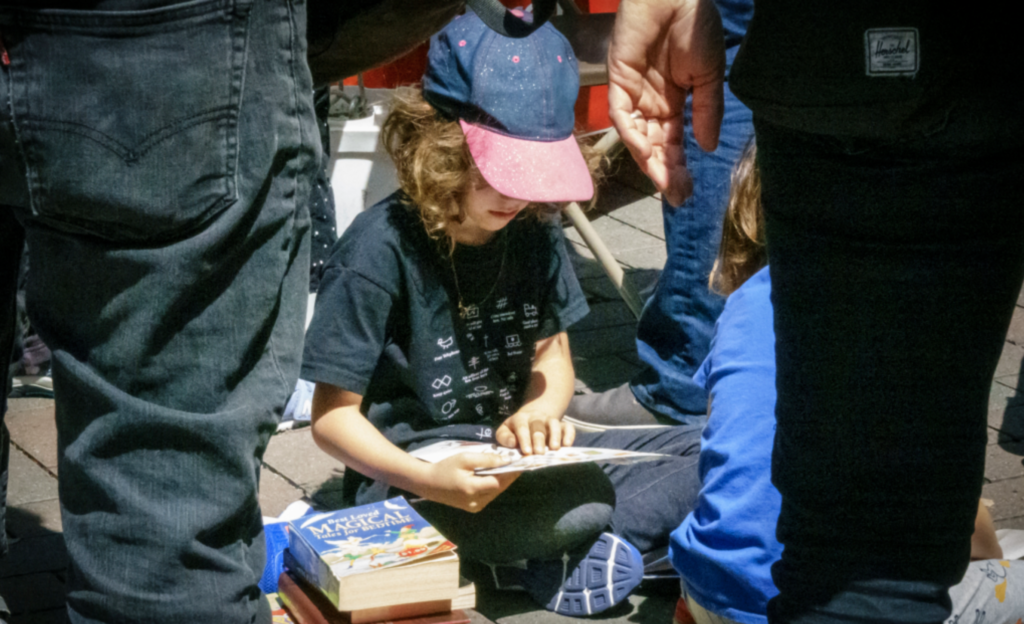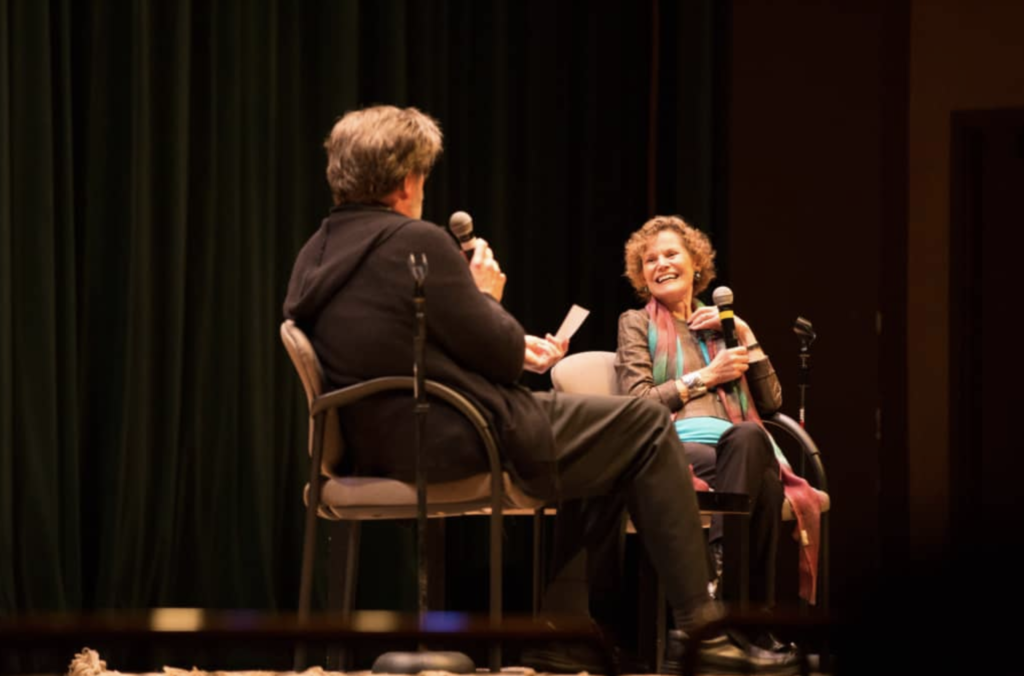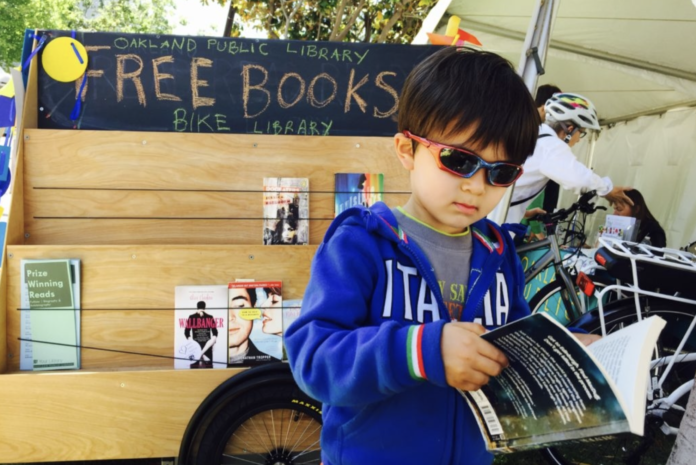In good times, a book, and in bad times too. The team behind the Bay Area Book Festival (May 31 and June 1) is well aware of the pivotal power of the page, and has put together quite the lineup for this year’s two-day, 275-plus-author (!) extravaganza. If you’re wondering how on Earth you’ll choose from among the book talks, kids’ events, panels, block party, ample opportunities to score local lit, writer’s workshops, and six whole stages booked to the gills, consider the social issue that currently has you losing sleep. This is far from an escapist literary event.
BABF, which is being presented by the Federated Indians of Graton Rancheria, has its eyes squarely on making the world beyond the covers a better place.
“In all, the festival is designed not just as a site of reflection but as a launchpad for action—where people can build networks, share knowledge, and find concrete ways to support one another,” J.K. Fowler, the founder of Nomadic Press and one of the great minds behind the Oakland poet laureate program, who is celebrating his first year as the festival’s executive director, tells 48 Hills. “Our hope is that attendees leave energized with new connections, practical tools, and a renewed sense of collective power to resist injustice and build a more just and joyful future.”
One of the headlining BABF events is a conversation between writers Prentis Hemphill and Mia Birdsong, whose respective books What It Takes To Heal and How We Show Up focus on the primacy of interdependence when it comes to individual and collective healing. Heed their words and grab your group for a panel on the urgency of outsider voices and a series of free talks—everything is free to enter at BABF except the headliner talks—on issues like independent media’s role in preserving democracy and political prisoners (everything mentioned in this paragraph takes place May 31 at Freight & Salvage).
The sheer volume of ideas that will be exchanged over a period of 48 hours kind of boggles the mind. To learn how organizers went about putting together the altogether-invigorating schedule—and the tangible ways the festival looks to shore up its community in tough times—we caught up with Fowler via email.

48 HILLS This is your first festival edition as executive director. What part of Bay Area Book Festival’s work was most exciting to you prior to accepting the position, and where do you hope to shift/expand its mission? (Can we see the latter reflected in this year’s festival lineup?)
J.K. FOWLER Before stepping into this role, what truly energized me about the Bay Area Book Festival was its commitment to amplifying essential conversations and inclusive perspectives—values that have always been at the core of my work, whether at Nomadic Press or in community organizing across Oakland and the East Bay. I’ve long admired how BABF doesn’t just showcase books, but uses the literary arts as a vehicle for community engagement and civic dialogue.
As executive director, my vision is to expand this mission in three key ways. First, by deepening our outreach beyond Berkeley to truly serve the entire Bay Area, especially the vibrant communities of Oakland, San Francisco, and the East Bay whose voices have often been underrepresented in mainstream literary spaces. Second, by forging new partnerships—across nonprofits, other festivals, grassroots organizations, and cultural institutions—to strengthen our community ties and ensure our programming reflects the full spectrum of our region’s diversity. Third, by building a more robust organizational infrastructure so we can support more year-round programming, foster new talent, and create platforms for urgent, intersectional conversations.
I also want to directly address—and work to dismantle—the false notion that those of us in the literary community are somehow in competition with one another. You can already see the shift in this year’s festival lineup: we’re intentionally centering authors and artists who speak to the pressing issues of our time—democracy, justice, belonging, and resilience—while also providing space for joy, creativity, and healing. We’re centering Indigenous voices through our partnership with the Federated Indians of Graton Rancheria, and our programming is intentionally designed to move us from passive consumption to active participation in building a more just and joyful world.
48 HILLS As a YA author myself, I adore this year’s wonderful Family Day (May 31) lineup. Can you talk about how the festival approaches programming for young readers? Are there any differences from how it approaches events for the olds?

J.K. FOWLER We approach it with the same seriousness and joy as our adult programming. For young readers, we focus on interactivity, imagination, and empowerment. We want kids and teens to see themselves as creators, not just consumers, of stories. This year, we’re especially proud to co-present Family Day in partnership with the Social Justice Children’s Book Fair—a collaboration that allows us to center stories and creators who reflect the full diversity of our community and who are committed to justice, equity, and representation.
While our adult events often tackle complex social and political issues head-on, our youth programming is about planting seeds of curiosity, empathy, and agency. But make no mistake: young people are hungry for real talk about the world, and we don’t shy away from big topics. We just meet them where they are, with respect and openness.
48 HILLS Much of this year’s programming seems to be a balm to our turbulent political times. Beyond spotlighting brilliant authors writing about urgent topics, what are the tangible ways the festival is looking to build mutual aid, community empowerment and other forms of resistance this year?
J.K. FOWLER One concrete example is our panel titled “Mutual Aid and Community Care in California” at Freight & Salvage (May 31). This session brings together voices like Dani Burlison and Margaret Elysia Garcia, whose collection Red Flag Warning highlights grassroots organizing and resilience in the face of ecological and social crises. Adéniké Amin from BLACspace Cooperative will speak about how storytelling and cultural preservation serve as vital forms of mutual aid, fostering economic opportunity and collective resilience. Jocelyn Jackson, a chef and activist, will discuss her work at the intersection of food justice, environmental education, and radical hospitality. Together, they explore how mutual aid networks across California reshape survival, support, and recovery—especially after disasters, whether natural or human-made. This panel, moderated by Brian Edwards-Tiekert of KPFA radio, exemplifies how the festival is centering community care as a form of resistance and collective power.

Beyond panels, we’re partnering with local organizations to provide tangible resources and opportunities for attendees to engage in ongoing community work. For example, our Bookworm Block Party and Small Press Alley feature local presses and community groups that embody grassroots cultural work and mutual aid principles.
We’re also integrating spaces like the Health in Community Row, sponsored by the Black Arts Movement Business District Community Development Corporation of Oakland, to highlight local service providers who offer direct support and healing within communities.
48 HILLS What is a book you have reached for during this distressing era of global events?
J.K. FOWLER I’ve found myself returning to the works of Octavia Butler—particularly her Parable series. Butler’s vision is strikingly prescient; in Parable of the Sower, for example, she imagines a near-future America plagued by climate catastrophe, social breakdown, and authoritarian politics—circumstances that feel eerily familiar today.
Reading Butler reminds me that, even in the darkest times, the seeds of transformation are within our reach if we nurture connection, imagination, and mutual care. Her work is both a mirror and a guide for those of us striving to create a more just and resilient future.
48 HILLS Has the festival been impacted by recent rounds of federal arts grant cancellations? Is it taking special steps to ensure its continued sustainability amid that volatility?
J.K. FOWLER Like many arts organizations in the Bay Area, we’ve felt the shockwaves in our communities from the recent National Endowment for the Arts grant cancellations. We’re responding by doubling down on community partnerships, diversifying our funding streams, and making sure our programming remains accessible—this year, almost all events are free to the public.

48 HILLS How are you envisioning your lived experience of this year’s festival? What do you imagine will be the most rewarding and challenging aspects of these two incredibly packed days of the main event?
J.K. FOWLER I’m envisioning these days as a whirlwind of connection—between authors and readers, between neighbors, between generations. The most rewarding aspect will be witnessing those moments of recognition and inspiration: a young person discovering a book that changes their life, a panel sparking a new collaboration, a community coming together in joy and resistance.
The biggest challenge, honestly, will be wanting to be everywhere at once! But that’s a good problem to have—it speaks to the vibrancy and urgency of what we’re building together.
BAY AREA BOOK FESTIVAL runs May 31 and June 1. Various Berkeley venues. More info here.




